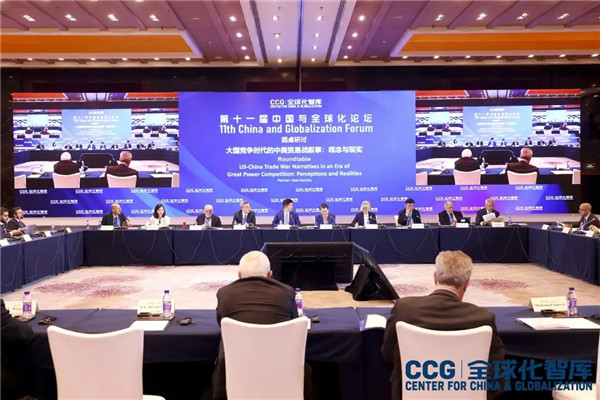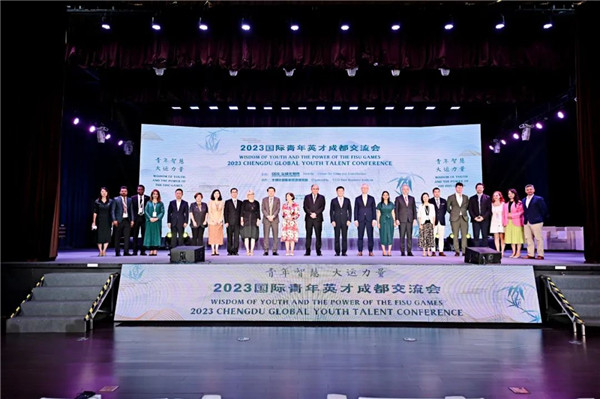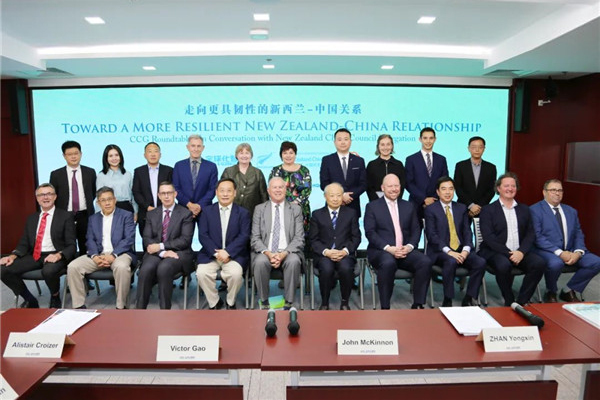China and the U.S. are not “Part A and Part B” in geopolitics but dual-center in the process of global governance and world order evolution
Immediately after the end of the 19th CPC Congress, the American President Donald Trump is paying a state visit to China on Nov 8. Surrounding the future relationship between the two countries, the experts of the Center for China and Globalization (CCG) were invited to exchange their opinions on this part and in their mind, China and the U.S. are not “Part A and Part B” in geopolitics but dual-center in the process of global governance and world order evolution.
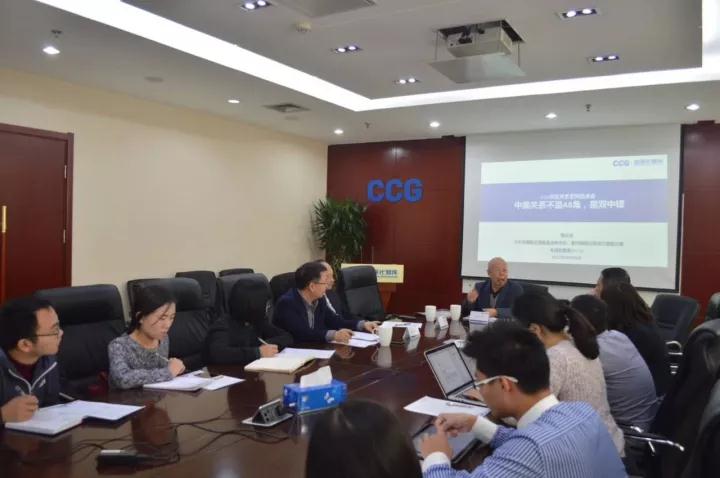
On 31 Oct 2017, CCG invited the Secretary of China- U.S. Exchange Foundation, Mr. Chen Yonglong to offer insight into the future of Sino-U.S. relations. Other guests included Ding Yifan, the Non-Resident Senior Fellow of CCG and Yang Guoliang, the professor and doctoral tutor of UIBE.
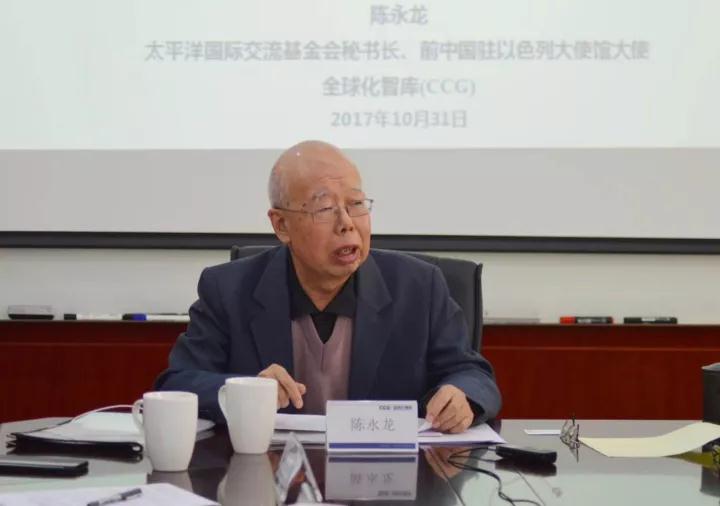
From the viewpoint of Mr. Chen, it’s time for China-U.S. relations to be rooted in innovative development, and for which purpose, China and the U.S. should bring forth the new through the old concerning mindsets, ideas, contents and formalities, and try to see, study, understand and treat each other all over again. Different from the situations of all rises and declines of great powers and power changes in the past, China and the U.S. can create new history. Just like what President XI Jinping has said, we have 1000 reasons to make China-U.S. relationship good and not one single reason to destroy it. Similarly, senior officers in the U.S. are also thinking about China-U.S. relationship in the following 50 years.
To Mr. Chen’s mind, measuring China-U.S. relationship under the background of the times, we may see such a circumstance: China and the U.S. are not “Part A and Part B” in geopolitics but dual-center in the process of global governance and world order evolution. Up to today, both China and the U.S. agree that their bilateral relations have entered a new development stage: Competition in responsibility bearing and world leading, and contending in the evolution of orders and regulations. Dialogues between China and the U.S. have exceeded the meaning of two-civilization dialogues and taken the nature and significance of multi-civilization dialogues. In the relationship between Part A and Part B, A plays the leading role with B as a supporting part, their statuses are not equal and the importance of their roles also differs. While in China-U.S. relations, neither party should become the supporting partner nor understudy to the other. A dual-center relationship is different as they belong to the same team, namely the team of building a community of shared future. They are equal partners and together they cooperate and supplement other players, the only difference is that superpowers play central roles based on their national conditions and national strength.
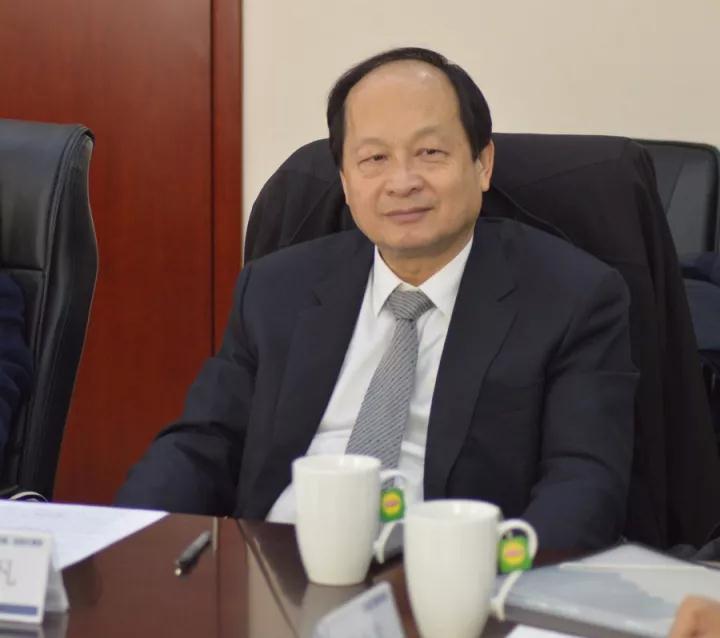
Recently, as the trade friction between China and America worsened, the two countries’ cooperation in trade is another focus of Trump’s visit to China. From the standpoint of Professor Ding, the trade and economic cooperation between China and America is what maintains the stability of the relationship of the two countries. However, America still adopts its traditional mindset and constrains the rise of any country. Therefore, it uses the rule of international trade to prevent China from becoming a power that can compete with America. Nonetheless, if America does not change its strategy, the trade friction between the two countries may one day escalate into antagonism.
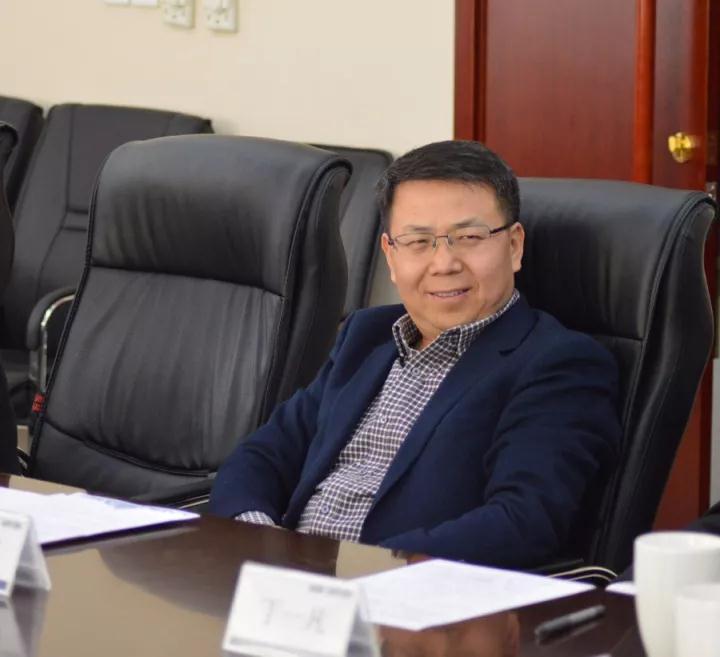
In the face of the issues, Professor Yang believes that both countries ought to adopt new perspectives to view the two countries’ relations. Politics should be differentiated from economics and trade and they should overcome some of their traditional beliefs to achieve some breakthrough in the two countries’ relations. It is impossible for the two countries not to confront each other, but they should ensure that their discrepancy is within their control.
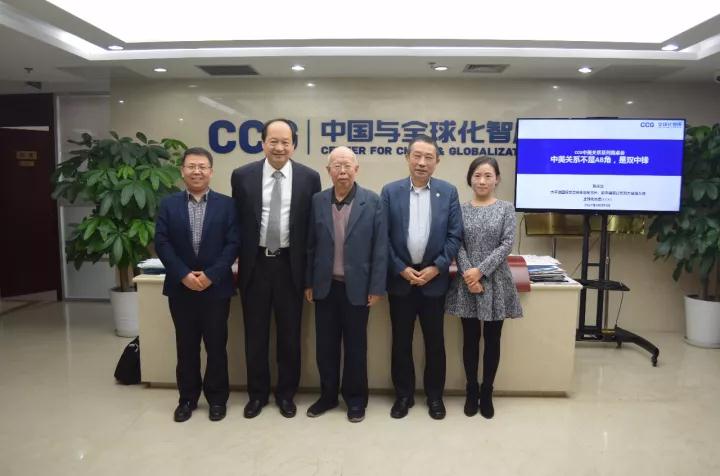
LocationBeijing
